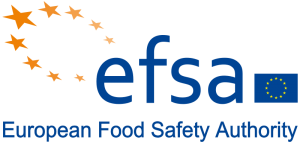Risk to Consumers of Pesticide Residues in Food Remains Low

Ninety-seven per cent of food samples collected in the European Union are free of pesticide residues or contain traces that are within legal limits. The conclusion is part of EFSA’s latest annual report on pesticide residues in food, which analyses the results of almost 83,000 food samples from the 28 EU Member States – including Croatia for the first time – as well as Iceland and Norway.
Jose Tarazona, Head of EFSA’s Pesticides Unit, says: “The high compliance rates recorded for 2014 are in line with previous years, which means that the EU is continuing to protect consumers by controlling the presence of pesticide residues in food. Our annual report is a major undertaking that is rooted in the data we receive from Member States. It would not be possible without the commitment and expertise of our European partners, and we thank them for their contribution.”
Main findings:
* 97% of samples analysed were within legal limits.
* Of these, 53.6% were free of quantifiable residues and 43.4% contained residues that were within permitted concentrations.
* Of the samples originating from EU/EEA countries, 1.6% contained residues exceeding legal limits; the corresponding figure for samples from third countries was 6.5%.
* No quantifiable residues were found in 91.8% of baby food samples.
* 98.8% of organic products were either free of residues or contained residues within legal limits.
* EFSA used data from the report to assess whether current dietary exposure to pesticide residues presents a risk to the health of Europeans in the long term (chronic) or short term (acute). In both cases, the Authority concluded that exposure is unlikely to pose a threat to human health.
 Dr Tarazona adds: “We are always looking at ways to improve the annual report – this year, for example, thanks to the efforts of the Member states we have significantly improved the harmonisation and integration of the data submitted to EFSA. This year’s report also contains suggestions that we believe could make pesticide control programmes more efficient.”
Dr Tarazona adds: “We are always looking at ways to improve the annual report – this year, for example, thanks to the efforts of the Member states we have significantly improved the harmonisation and integration of the data submitted to EFSA. This year’s report also contains suggestions that we believe could make pesticide control programmes more efficient.”
For the 2014 report, EFSA has made a number of changes in response to requests and comments from stakeholders. For example, the report now includes greater detail on organic products and baby food, a specific section on glyphosate, and more comparisons with results from previous years.
Recommendations
EFSA has made a number of proposals to improve the effectiveness of monitoring of pesticides in the EU. These include:
* Extending the scope of the monitoring programme to food products such as small fruits, berries and tea, which were frequently identified as containing residues.
* Reducing analysis of animal products and shifting the monitoring focus to animal feed e.g. soya bean, rapeseed and barley.
* Including mandatory analysis of glyphosate in the above crops.
* Including honey in the “basket” of samples to improve understanding of exposure of bees and inform possible revision of legal limits of residues in honey.
* Improving communication of changes to permitted residue levels to importers of food from outside the EU.


































